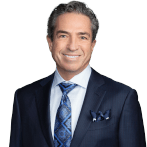Josh Rubenstein, partner and national chair of the Private Wealth practice, recently spoke with Slate's "Pay Dirt" column regarding questions involving fiduciary duties for fiduciaries of living trusts who are also beneficiaries. The column explored questions surrounding a trustee's ability and responsibility to distribute funds generated from income and from the sale of property that is part of a living trust. Josh noted that the answers are likely found in the trust document. For the example in the column, he stated, "Odds are it says that income can be paid to the beneficiaries in the discretion of the trustee and on termination of the trust (whenever that is), the trust assets pass to issue per stirpes [that is, in a linear fashion according to the family's lines of descent], or in some other relatively equal fashion, but that may not be the case. Regardless, it sounds like a conflict of interest for the trustee to use his powers to benefit only himself. If you cared to make an issue of it, you could bring a compulsory accounting proceeding and make the trustee account for his conduct to the court."
But, he adds, there's no way the proceeds from a sale can be distributed except as the trust dictates. "If the apartment passed under the trust, it does not belong to the heirs (or to the trust beneficiaries, for that matter), who would have no responsibility if the trustee failed to pay property taxes or other trust expenses. It is hard to imagine that the trustee would fail to do so if he and his family are living there, but if he did, creditors could force a sale of the property in order to receive the money they are owed."
"My Relative Made a Catastrophic Financial Decision. Is He Beyond Help?," Slate, January 7, 2022


